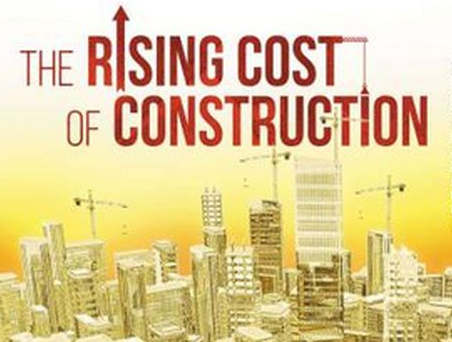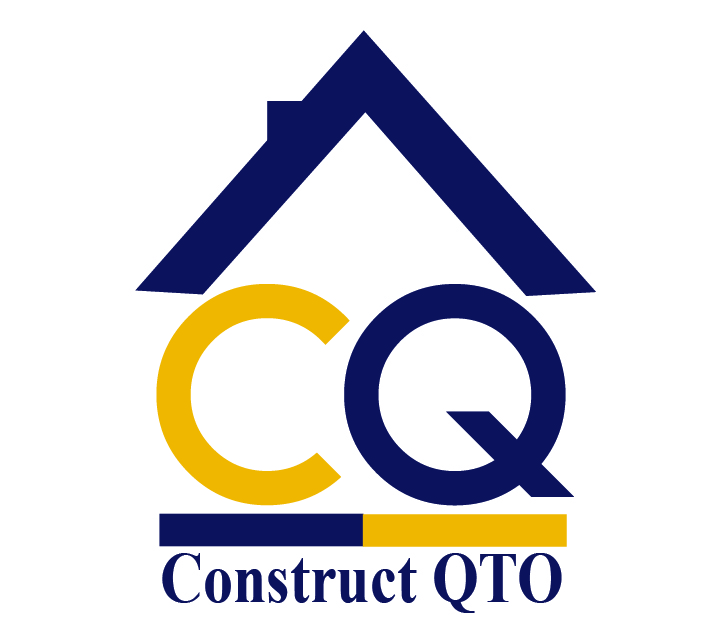The first answer comes in your mind is CONSTRUCTION MATERIAL COSTS.
The past years were difficult for the construction sector, from requests for stay-at-home work to supply chain challenges brought on by the pandemic.
As the world struggled with a weird new disease, production of everything from steel to lumber halted, and in many regions, construction workers were judged non-essential, halting projects in their tracks.
But as we gained experience with how to continue working safely throughout the epidemic, the building environment started to improve and the need for resources increased. Manufacturers struggled to satisfy the rising demand, though, as back inventories were low after weeks of being shut down.
Building materials are becoming more expensive as a result, endangering the bids and spending plans of construction projects around the nation.
However, this does not imply that these projects must be postponed until material prices decrease. It serves as a reminder of the opposite: it’s dangerous to put your project on hold once it’s been budgeted or put out to bid.
WHAT COULD CAUSE A CONSTRUCTION PROJECT TO INCREASE IN COST POST-BID?
Construction Projects are Getting Increasingly Expensive Every Day
Project takeover and construction must start as soon as reasonably possible after the project’s bid or budget, even under ordinary market conditions. The bid or budget is based on material costs at the time the bid was put together, and material and labor costs might change quickly. whether it be a few weeks or months, period. Because they recognize and appreciate that your project is a significant investment and isn’t something you should rush into without careful consideration, the general contractor, design-builder, or construction manager will hold the project’s pricing for the owner for a comparable amount of time.

After receiving the bid, you might need to value engineer it to cut costs or gain support from various stakeholders. There may be issues with zoning or permits holding up the project, or you may just need more time to consider your options. It is vital to provide some time between the opening of bids and the start of construction, and this assurance keeps the project’s cost under control.
Although, the project is susceptible to a price modification to reflect current market prices if you don’t start it before that guarantee expires.
A well-planned project with a workable budget can become one that unnecessarily strains your resources because of these pricing variations. It is crucial that your project proceeds without much delay following the bidding phase because of this. The likelihood of material price increases with the amount of time between your bid and the project’s buyout.
The cost increase for supplies between bid day and the commencement of the buyout may occasionally be minimal. However, the events of 2020 have significantly increased the stress on building materials, making this a very unpredictable period for prices.
Shorter periods for price guarantees are thus becoming more common across the business. Owners are arranging project funding concurrently with the bidding process to lessen the possibility that your bids will rise. By being prepared to start working on their project as soon as the bids are received, they will be able to benefit from the locked-in prices.
We are aware that there are numerous justifications for stopping a project after the bid phase. Be aware, though, that doing this raises the likelihood that you’ll pay more overall.
DO I NEED TO Hold FOR PRICE REDUCTIONS BEFORE ISSUING A BID REQUEST FOR A PROJECT?
Simply say, no. Whether you’re in the post-bid phase or getting started, this could be a perfect opportunity to drive your construction project forward.
Despite rising material costs, contractors are making every effort to keep total project expenses within their clients’ reach. The Associated General Contractors of America reports that while input costs (or building supplies) climbed at a far higher pace than construction costs, the cost of nonresidential building construction only increased by 0.1%.
These figures indicate that contractors are coming up with innovative ways to keep costs down for clients, enabling projects to go as scheduled.

Accelerating the timeline or finding inventive ways to shorten the project’s duration without compromising the project’s quality or workmanship are two strategies to cut expenditures.
Choosing alternate materials that might not have experienced a similar price increase is another option. We are seeing significant price increases for the most well-liked and often used commodities, such as plywood or steel. Instead, contractors are quoting alternatives to traditional materials that, despite being more costly or unusual, may end up being a superior choice in the current market.
Subcontractors are doing the same thing as contractors to keep prices as low as possible. Project owners benefit from price competition because of the COVID-driven uncertainty. Contrast this with the building boom we saw in the years and months just before COVID.
In the end, if you work with a contractor who is committed to acting morally, they’ll go above and above to keep your costs from rising. Thinking outside the box and being opened to coming up with innovative methods to cut expenses while preserving the integrity of the project is crucial.
However, despite their best efforts, they probably won’t be able to totally reverse the price rises. So that you can understand exactly what increased in price and by how much, you should work with a construction company that has an open-book policy.
PERCEIVING THE Positive Side
We have all had a difficult few years. Supply chain issues, demand swings, and new and growing safety standards have all had an impact on manufacturers, suppliers of building materials, and contractors. Shutdowns reduced manufacturers’ backstock, forcing them to ramp up production and put in extra hours to keep up with demand. That, however, has a price.
Many people anticipate that the supply of building supplies will catch up as we become acclimated to working safely throughout the epidemic and vaccines provide hope for the future. This ought to enable pricing to quickly revert to normal.
This period serves as a reminder of two things:
1-The necessity of starting construction promptly after the bid stage.
2-The value of working with a general contractor (GC), design-builder (DB), or construction manager (CM) who is dedicated to negotiating on your behalf with subcontractors and suppliers to secure the most affordable materials and labor for your project.
Conclusion:
I trust that this article has shed light on the importance of commencing construction promptly after bid day. If you find yourself pressed for time to prepare bids, consider us for your upcoming project.
By the way, Construct QTO is a specialized construction estimating service catering to contractors, subcontractors, homeowners, and architects, providing accurate cost estimates.


